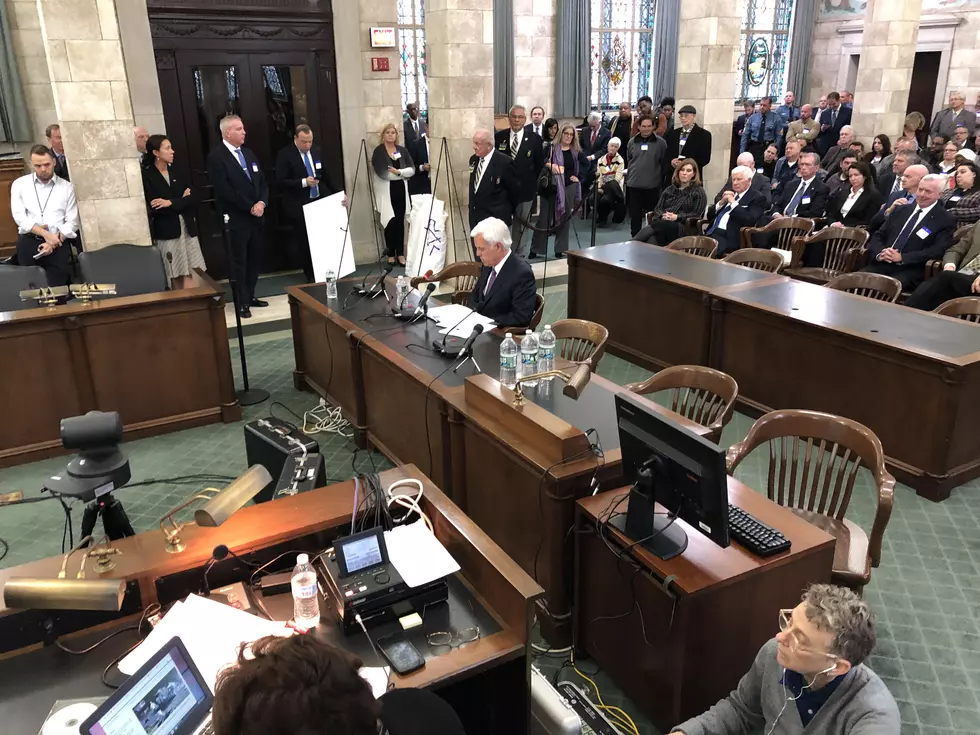
Why the 40-hour workweek in New Jersey needs to change (opinion)
If anything is becoming apparent with the workforce in this country it's this. The time has come for us to move away from the past.
The workforce is dealing with issues it's never had to face before. From worker shortages to mandates, all of which affect us one way or another.
But we shouldn't just sit back and complain, which tends to be the default for those who actually have the power to implement change.
Problems in the workforce have been around for some time, but the most recent movement of the great resignation is helping put this change back in the spotlight.
I first argued why a 4-day workweek would benefit New Jersey and can set us apart from most of the country as a leader in positive change. But we need to take that a step further to ensure burnout doesn't happen by working ridiculously long days.
If we're ever going to make positive reform, then all of these factors must come into play. So along with allowing workers the ability to work a four-day schedule, here's why we also need to address the 40-hour workweek.
It's a product of the past
Let's first look at the history of the 40-hour workweek. In the past, it was often the practice for the men of the home to put in a long day and make the income.
The women, on the other hand, stayed home to tend to the house. The cost of living was also very different from what it is now, so it wasn't uncommon to survive with one paycheck.
Not enough time to get everything done
It's very common today to have both parents of a household working 40-hours a week. But think about that for a moment. If two parents are working 40 hours, then it's equivalent to an 80-hour workweek.
That's 40 hours lost from getting other essential tasks done. It's also why many of us spend what little free time we have trying to get caught up on other must-do tasks.
A better work-life balance
With virtual work now a reality for many of us, it's harder than ever to turn ourselves off from the job. We need a better work-life balance so that we can prioritize those moments that matter. Relaxation also shouldn't be considered a luxury.
The overtime threshold needs to change
Let's be truthful here, no reform can or will happen without a change to what we consider overtime. Yes, there is something known as reduced full-time, which is commonly referred to as 30 or 32 hours a week.
But if a company needs you longer than that, you won't make any extra for your efforts in overtime. We should make 30 hours the new threshold to receive overtime.
A 30-hour workweek can support a four or five-day work schedule
A new overtime threshold would pave the way for shift reforms. So for someone who would work a four-day workweek, they would still work a standard seven-and-a-half hour day.
And for those who must work a five-day workweek, it can be broken down into six-hour days. For many, having more personal time for their life is more important than pay.
Not to say pay's not important, as that would have to be addressed as well with a new structure. But personal time is crucial to our health, and we shouldn't have to sacrifice that over our jobs.
So there you go, the reasons why New Jersey should change its labor practices and be a leader for the nation to follow. The biggest takeaway is personal time, which is very important to many. But much of this sadly won't happen unless the overtime threshold is reduced.
So where do you fall on this issue? Should New Jersey be a leader and reduce the average workday below 40 hours a week? Sound out and let us know.
Along with reduced hours, I also argue why a four-day workweek is just as important. Click here to check out that story, then take the poll on that issue and let us know where you stand.
Why Being Asked To Go Into Work Is A Problem After Working All-Remote:
How NJ is better at something in each and every state
More From New Jersey 101.5 FM









